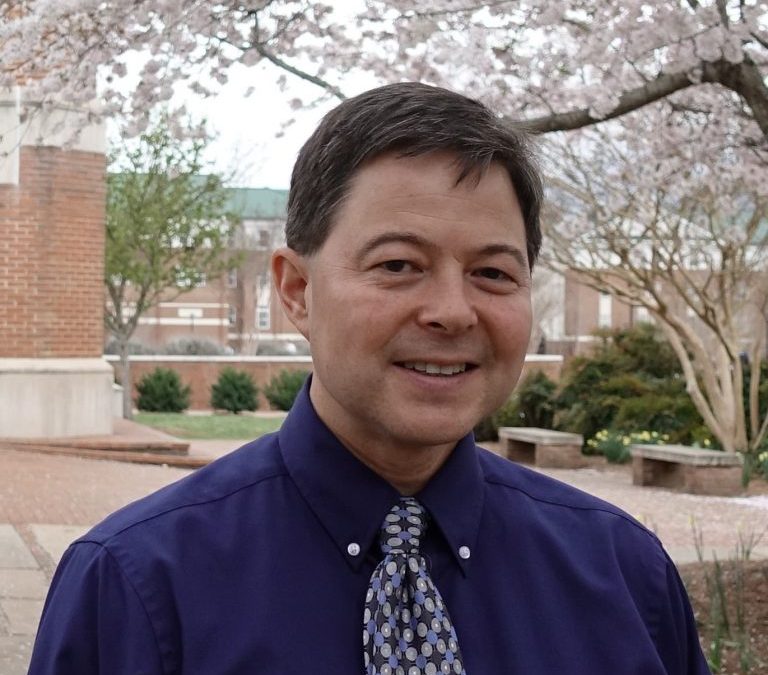Continuing with our spotlight of our 2020-21 Faculty Affiliates, we want to highlight one of our affiliates, Martin Tanaka, and his exciting work. Martin is an Associate Professor in the School of Engineering and Technology at WCU, who is interested in applying mechanical engineering principles to biomedical problems. He accomplishes this using the principles of product design, design optimization, and computational modeling and simulation.
Martin completed his undergraduate degree in mechanical engineering at NC State, followed by a master’s degree in engineering mechanics at Virginia Tech, and then earned his Ph.D. in biomedical engineering from Virginia Tech and Wake Forest University. Martin is now finishing up his 11th year at WCU, although his focus has not been solely academic. Martin has many years of industry experience with product design and development as well, including working for Texas Instruments and developing products for Mercedes Benz.
He no longer works in the industry, but this background has given him insight into how academics can help technical businesses thrive. With CSFE’s support, Martin is focusing on investigating the elements that businesses, with a special focus on biomedical device companies, need to establish, grow, and sustain healthy, beneficial collaborations with academic partners.
“How do you strengthen it, maintain it, nurture it, and feed it? It’ll grow beyond just what you originally had because now you not only have the professional interaction, you also are developing personal relationships,” Martin said, continuing on, “People get to know people, they work with people, they hear about things that are going on in people’s lives, these are some of the things that should accelerate it, keep it going.”
Sometimes just a little help is all that is needed. A healthy collaboration is symbiotic, and innovation is likely to spark if the environment is right. “If I’m helping a business, say, with engineering, seeds of innovation can form. The partnership is like adding a little fertilizer and water to help ideas grow a little bit better. And if they grow better, then it’s more likely that something useful is going to emerge,” noted Martin.
Currently, Martin is also working with the American Society of Mechanical Engineers (ASME) to develop standards to test the mechanical properties of biological tissues. Material properties could be entered into a database for individuals and groups around the world to use. This will make the process of developing new medical devices more streamlined and give each developer a standard to go by. Access to this information can increase innovation, efficiency, and timeliness within businesses and reduce barriers to entry for small businesses in the biotech sector.
Through this exciting research, Martin hopes to accelerate the approval process for new biomedical devices, which would allow these devices to get into the hands of individuals who need them more quickly and at a lower cost.
We at CSFE are proud of all of Martin’s work so far and are looking forward to seeing what is to come. To look at his past research and work, click here.

